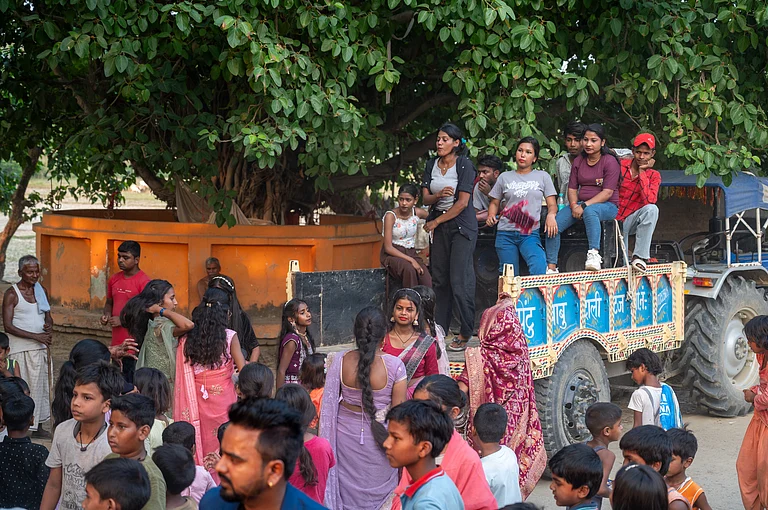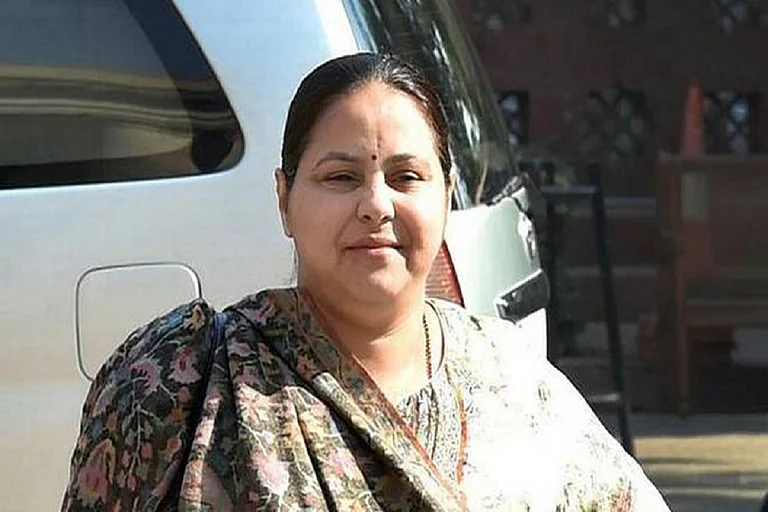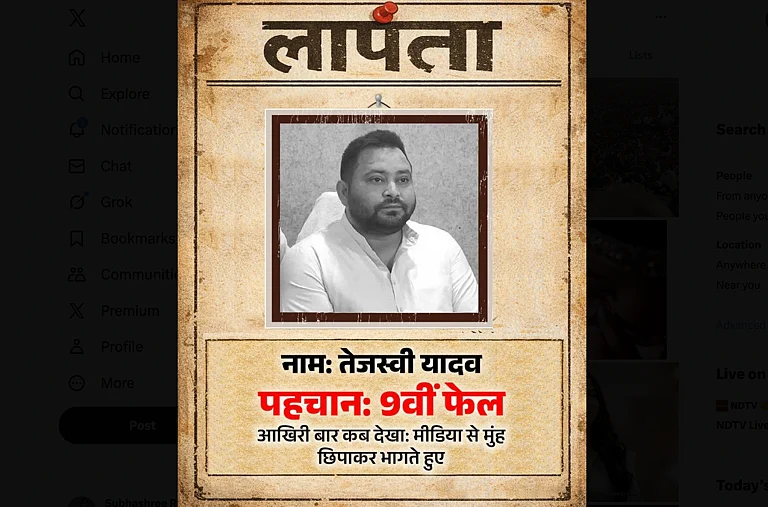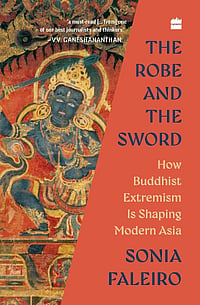
Bihar’s 2025 election campaign has turned digital and divisive, with AI-generated videos and deepfakes—such as the controversial Modi-Hiraben clip—fueling outrage and misinformation.
Political parties, especially the RJD and BJP, are amplifying caste identities through targeted posters, Bhojpuri songs, and social media messaging that glorify specific communities and portray rivals as “outsiders.”
Amid the surge in provocative caste-coded content, Bihar Police have warned of strict action against violators, as the state’s digital campaign space blurs lines between satire, propaganda, and communal provocation.
As Bihar heads into the crucial 2025 Assembly elections, political campaigning has intensified online, with AI-generated videos, caste-coded songs, and deepfake endorsements dominating digital discourse. Parties are increasingly using social media to inflame tensions and mobilise communities, from personal attacks to subtle caste appeals.
In September, an AI-generated video linked to the Indian National Congress, featuring Prime Minister Narendra Modi and his late mother Hiraben Modi, sparked nationwide outrage. The clip depicted a fictional “vote-chori” (vote-theft) conversation, prompting the BJP to accuse Congress of exploiting personal grief for electoral gain. Congress defended it as satire, but the incident marked a new low in AI-driven political propaganda.
Barely weeks earlier, another controversy erupted when a video of a birthday celebration for RJD chief Lalu Prasad Yadav appeared to show a poster of Dr B.R. Ambedkar placed at his feet. BJP leaders swiftly condemned it as “an insult to a Dalit icon”, accusing the RJD of hypocrisy on social justice. The RJD dismissed the outrage as a distortion, but the visuals had already gone viral, reigniting caste fault lines across Bihar’s digital space. RJD supporters have pushed hard on a narrative of local belonging, producing posters and social posts that label leaders as “shudh desi Bihari” (pure native Bihari) while casting opponents as “outsiders”.
On October 19, BJP's official X account posted an insulting graphic which showed a bus supposedly belonging to the RJD and Congress, carrying Muslims labelled as 'infiltrators'. These 'infiltrators' are visibly shown as 'evil' Muslims who are travelling with their belongings, including a goat, towards Bihar. The caption reads, "Congress and RJD's 'Infiltrator Express' — now heading towards Bihar”.
Such messaging is a common tactic in identity politics, it consolidates a core vote while portraying rivals as alien to local interests. At least one RJD poster near Rabri Devi’s residence, contrasting Tejashwi Yadav as the “true Bihari” and branding Chirag Paswan an outsider, provoked swift debate and accusations of polarisation.
Controversial Songs
On campaign trails and in social media reels, songs with lurid, suggestive lyrics are blaring from loudspeakers, blurring the line between entertainment and electoral propaganda. Tracks such as “Jo dega vote usay Russian delainge” (“We’ll give a Russian [woman] to whoever votes for us”) and “Russian bantwa denge ration mein” (“We’ll distribute Russians [women] along with ration”) have surfaced as the latest tools of mobilisation. In these songs, the term “Russian” functions as a metonym for foreign escorts, a disturbing portrayal of women as commodities to be traded for political gain. The lyrics crudely equate the female body with state benefits, reducing dignity and agency to a punchline for power.
This coarsening of Bhojpuri pop culture for political ends isn’t new but has become more brazen. Consider the 2020 hit “Laundiya London Se Layenge, Raat Bhar DJ Bajayenge”, a hyper-masculine anthem that celebrates imported glamour and endless revelry.
Adding fuel to the identity politics fire, a series of Bhojpuri song-videos and reels are being circulated by supporters of major parties, BJP, RJD, JDU, LJP and Congress alike, glorifying specific castes such as Yadavs, Bhumihars, and Kushwahas. These short videos, often stylised with catchy hooks and local idioms, make no overt slurs but carry unmistakable caste cues, appealing to narrow voter blocs while evading moderation.
An online petition on Change.org talks about the detrimental effects of vulgar Bhojpuri songs. It claims that these songs “undermine” the cultural values of the Bhojpuri-speaking community, which thus risks a “loss of cultural identity.” The petition highlights how such songs “glamorise unhealthy behaviors like alcohol and drug use, promiscuity, and violence,” contributing to their normalisation.
The campaign trail has also seen its share of misinformation. Earlier this month, a fake video of actor Manoj Bajpayee endorsing RJD leader Tejashwi Yadav surfaced on X (formerly Twitter). Bajpayee swiftly denounced the clip as “patched-up and fake”, raising concerns about deepfakes and the erosion of authenticity in political messaging.
Police Warns Of Strict Action
On October 25, Bihar police cautioned people against posting songs with provocative caste overtones on social media and said strict action would be taken against those trying to disrupt peace and violate the ‘model code of conduct’ in the state.
“No misuse of social media platforms will be tolerated. Police will take strict action against those who post objectionable and double-meaning songs with provocative caste overtones, including those of Bhojpuri, on social media platforms. Such acts are considered attempts to disrupt peace and violations of the model code of conduct in the poll-bound Bihar,” DGP Vinay Kumar told PTI.
Earlier this year, Bihar ADGP for Weaker Sections Amit Kumar Jain directed senior officers to conduct special on ground campaigns and file FIRs to eliminate the broadcasting of “vulgar” songs. Addressed to all Regional Inspector Generals (IGs) and Deputy Inspector Generals (DIGs) of Police in Bihar, the order states: “You are all instructed to conduct a special campaign to completely eliminate the broadcasting of obscene Bhojpuri songs in your respective areas, identify such cases, and direct all subordinates to register FIRs under Section 296/79 of the Bharatiya Nyaya Sanhita, 2023, and other relevant sections”.
With AI, reels, and fake videos blurring the line between propaganda and parody, Bihar’s election is fast becoming a test case for the future of political campaigning, one where emotion trumps evidence, identity overshadows issues, and virality replaces vision.



























